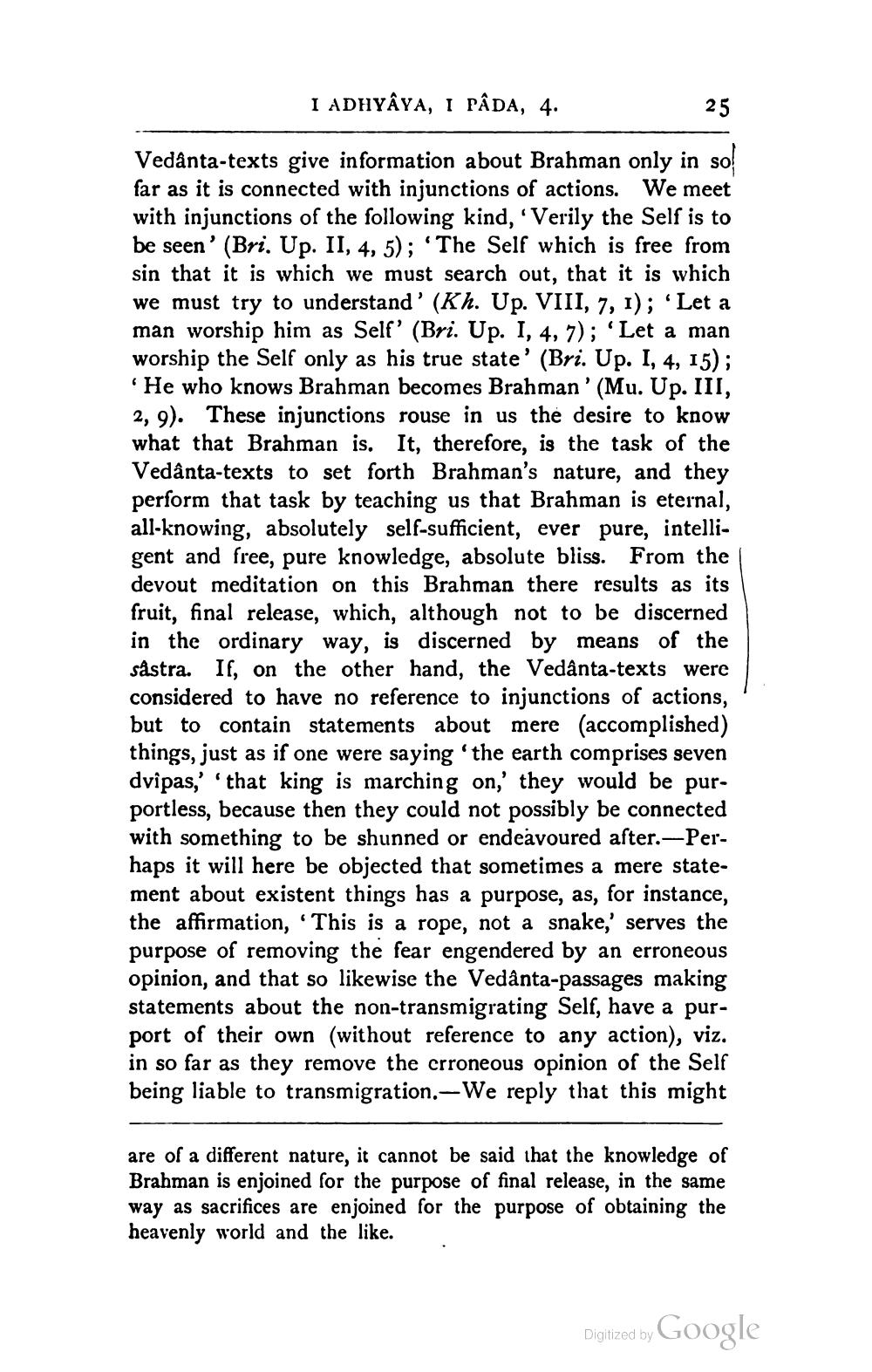________________
I ADHYAYA, I PÂDA, 4.
Vedanta-texts give information about Brahman only in so far as it is connected with injunctions of actions. We meet with injunctions of the following kind, 'Verily the Self is to be seen' (Bri. Up. II, 4, 5); 'The Self which is free from sin that it is which we must search out, that it is which we must try to understand' (Kh. Up. VIII, 7, I); 'Let a man worship him as Self' (Bri. Up. I, 4, 7); 'Let a man worship the Self only as his true state' (Bri. Up. I, 4, 15); "He who knows Brahman becomes Brahman' (Mu. Up. III, 2,9). These injunctions rouse in us the desire to know what that Brahman is. It, therefore, is the task of the Vedânta-texts to set forth Brahman's nature, and they perform that task by teaching us that Brahman is eternal, all-knowing, absolutely self-sufficient, ever pure, intelligent and free, pure knowledge, absolute bliss. From the devout meditation on this Brahman there results as its fruit, final release, which, although not to be discerned in the ordinary way, is discerned by means of the såstra. If, on the other hand, the Vedanta-texts were considered to have no reference to injunctions of actions, but to contain statements about mere (accomplished) things, just as if one were saying the earth comprises seven dvipas,' that king is marching on,' they would be purportless, because then they could not possibly be connected with something to be shunned or endeavoured after.--Perhaps it will here be objected that sometimes a mere statement about existent things has a purpose, as, for instance, the affirmation, 'This is a rope, not a snake,' serves the purpose of removing the fear engendered by an erroneous opinion, and that so likewise the Vedanta-passages making statements about the non-transmigrating Self, have a purport of their own (without reference to any action), viz. in so far as they remove the crroneous opinion of the Self being liable to transmigration. We reply that this might
are of a different nature, it cannot be said that the knowledge of Brahman is enjoined for the purpose of final release, in the same way as sacrifices are enjoined for the purpose of obtaining the heavenly world and the like.
Digitized by
Digized by Google




